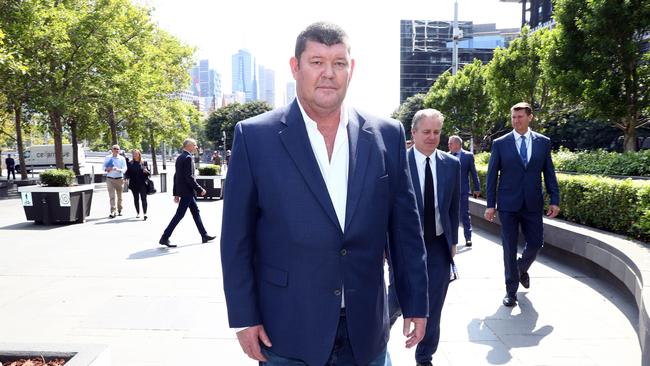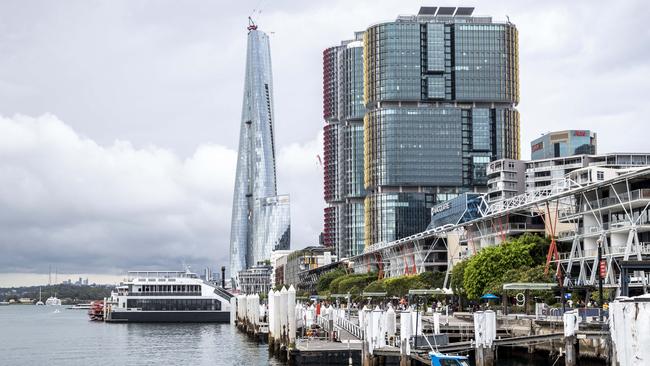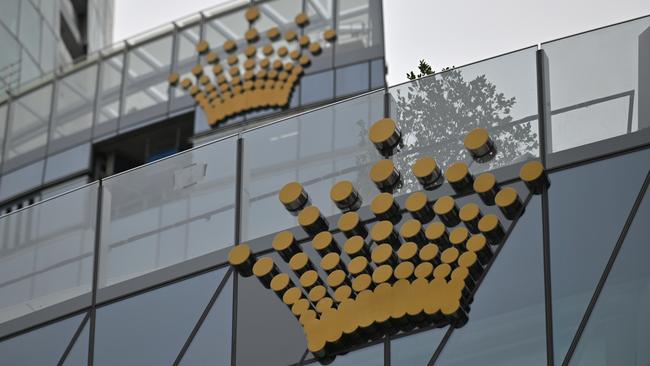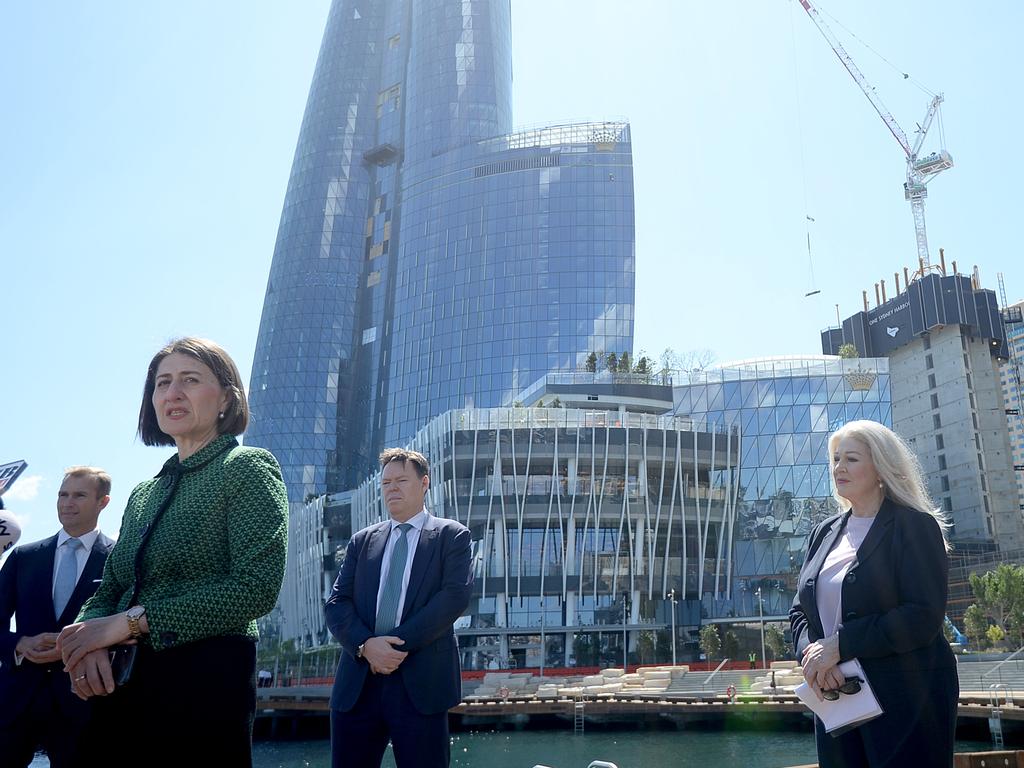James Packer not a suitable associate of Crown Sydney casino, inquiry told
Crown could lose its licence to operate Sydney casino, as inquiry urged to ‘reconsider’ James Packer’s suitability as an associate.

Billionaire James Packer is not a suitable person to be associated with the holder of the Barangaroo casino licence and was a “de facto director” of Crown Resorts after he stepped down from the company board, a NSW inquiry into the company has heard.
And reducing Mr Packer’s influence may be one price Crown has to pay to avoid having its licence to operate the Sydney casino suspended or cancelled, the inquiry heard.
Presenting closing submissions for a second day, counsel assisting the NSW Independent Liquor and Gaming Authority’s inquiry told Commissioner Patricia Bergin that Mr Packer’s behaviour should make the regulatorreconsider whether he is an acceptable associate of Crown Resorts, which is facing close scrutiny over whether it should hold the licence for Barangaroo in Sydney.
It comes as the casino’s opening faces delays after counsel assisting Adam Bell said on Wednesday that Crown itself was “not suitable” to told the licence.
On Thursday, Mr Bell SC said Mr Packer’s behaviour in an email concerning the privatisation of Crown in 2015 — in which he threatened private equity figure Ben Gray — meant his suitability as an associate of the licensee of the Barangaroo casino should be reconsidered.
The contents of the email are not known to the public, but Mr Packer last month told the inquiry that his conduct was “shameful” and was attributable to his ongoing struggle with bipolar disorder.
“We submit that you should recommend to the authority that it reconsiders its approval of Mr Packer as a close associate of the licensee, having regard to his conduct as evidenced in these emails,” Mr Bell said.
Mr Packer’s struggle with mental health issues was behind his decision to retire from the Crown board in 2018.
But Mr Bell said after this point Mr Packer continued to act as a “de facto director” of the company, under a controversial shareholder protocol that allowed him to receive confidential financial information about the company.
Mr Packer also used the protocol to provide “instructions to board members or senior executives,” despite no longer being a member of the board himself, Mr Bell said.
“We submit that this evidence … establishes that the senior executives and board members of Crown Resorts concede that the protocol was not merely a means of providing information to Mr Packer but also as a mechanism for Mr Packer to continue to express his instructions and wishes in relation to the business,” Mr Bell said.
“We submit that you should find that in the period from November 2018 to May 2019, at least, Mr Packer had at least the same amount of confidential information about Crown Resorts available to him as the executive chairman Mr (John) Alexander did.
“In fact, if anything, Mr Packer’s access information was even more extensive.”
In addition to receiving information, Mr Bell said Mr Packer played an “active and important role” in that time period and was a “driving force in the business”.
“Commissioner, it is not apparent that a governing majority of Crown Resorts’ board of directors received and accepted Mr Packer’s instructions and wishes concerning Crown Resorts’ affairs over that period,” Mr Bell said.
“On that basis we don’t submit that Mr Packer was a shadow director of Crown Resorts
“However, we submit that the evidence demonstrates that he was a de facto director of Crown Resorts in the period.”
A de facto director is a person who performs the functions of a director without formal appointment to a company’s board, while a shadow director is a person whose wishes a board habitually acts in accordance with.
Both de facto and shadow directors have the same statutory duties and liabilities under the Corporations Act as the appointed directors of a company, and can be held liable for breaches of directors’ duties.

Crown could lose licence
Meanwhile the inquiry heard Crown could lose its licence to operate the Barangaroo casino as a result of its unsuitability as a company, and that Mr Packer’s influence could be reduced.
Mr Bell said that unless Crown engaged in a consultative process of reform with the state regulator, its licence should be suspended or cancelled.
This was because the agreement between Crown and the state government that underpins the licence contained a number of “trigger events” that prevent the regulator from directly ordering material changes to the company.
“Should unsuitability be ongoing one option may be for the authority to suspend the licence, coupled with the conditions as to suitability that if satisfied would bring suspension to an end,” Mr Bell said.
“The option of suspending the licence would not engage any trigger event.
“Another option that is available to the authority having regard to the regulatory agreements is cancelling the licence.”
Mr Bell said that some measures that the government may ask Crown to take include reducing the influence of Mr Packer and his holding company, CPH, on the company.
“We submit that there is wisdom in the imposition of shareholding caps subject to the approval of the authority,” Mr Bell said in reference to the Sydney Star Casino’s shareholding caps.
“There are however measures which could address the influence of CPH whilst it retains its shareholding in Crown Resorts.”
Mr Bell said the regulator could restrict CPH from exercising more than 10 per cent of its voting power in Crown Resorts. CPH is currently the largest sole shareholder, with 36.7 per cent.
Mr Bell also said that no more than one CPH executive should be allowed to sit as a director on the Crown board.
Currently there are three CPH-aligned directors: Michael Johnston, Guy Jalland and John Poynton.
Mr Bell also said that any agreement allowing financial administration to be shared with CPH or James Packer should be suspended - something Crown Resorts already did last month.
Mr Bell said these measures would address the ongoing contribution of CPH executives and Mr Packer to “failures” at Crown.

‘Loyalty at expense of duty’
Later in the hearing, Crown director Michael Johnston was accused of allowing his loyalty to Mr Packer to lead him to neglect his duty to Crown.
Mr Bell noted how Crown and CPH director Michael Johnston had had a number of roles, including preparing financial reports for Crown while being a director of CPH - the company that was going to sell a major tranche of Crown shares to Melco.
He said that this placed Mr Johnston in a situation of conflict of interest which he did not disclose due to his loyalty to Mr Packer and CPH.
“We submit that Mr Johnston placed himself into an obvious conflict of interest in the circumstances, which he failed to perceived at the time,” Mr Bell said.
“We submit that it’s clear that Mr Johnson looking only to the interests of CPH and CPH-Crown at this time and failed to consider the interests of Crown Resorts.
“At the outset of his evidence Mr Johnston agreed that for a long time he had shown complete loyalty to Mr Packer.
“This was a situation, we submit, where his complete loyalty to Mr Packer came at expense of his duty to Crown Resorts.”
Mr Bell said the entire situation “reflects adversely on his credit” and urged Patricia Bergin to treat his previous evidence to the inquiry with “caution.”
He also extended criticism to fellow dual CPH/Crown director Guy Jalland, saying he also failed to disclose a conflict of interest.





To join the conversation, please log in. Don't have an account? Register
Join the conversation, you are commenting as Logout